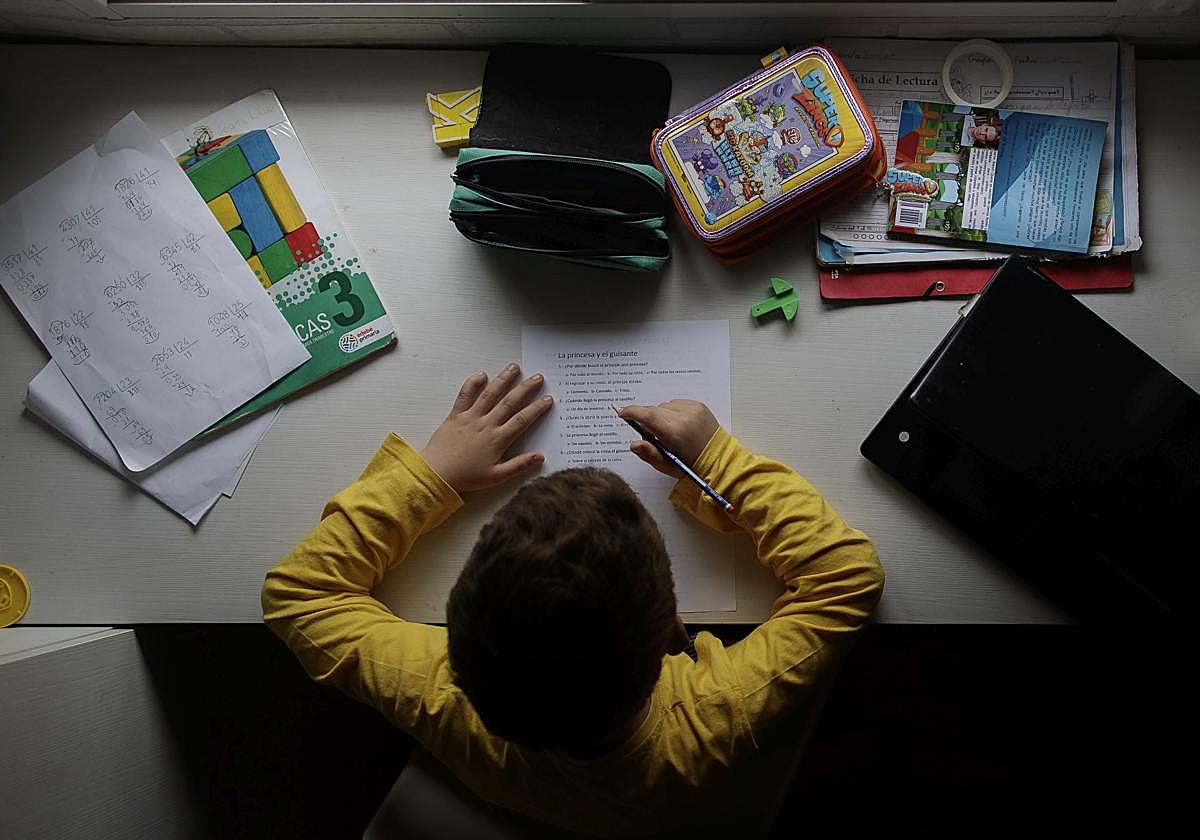Much obliged, I'm sure
If we want to make children happier, we need to encourage them to learn their times tables, to be able to conjugate French verbs correctly and, most importantly, to press 'delete' on all (anti) social media applications, suggests columnist Peter Edgerton
Peter Edgerton / www.peteredgerton.com
Malaga
Friday, 6 September 2024, 17:07
Somewhere in deepest California there's a house on a hill where the whole family sits and eats buckets of ice-cream all day and ... watches the films Frozen I and II on an endless loop. Well, possibly not, but it would be a reasonable conclusion to come to given that nine-year-old Sofia Schiavo once asked her mother, a member of the state assembly, if she could help pass a law banning school homework. Presumably not having ever read Lord Of The Flies, Mrs Schiavo acquiesced.
OK, that's not entirely true either but she has proposed the Healthy Homework Act, which looks set to be formally approved by the state governor. This legislation will set strict guidelines as to the content and amount of homework that can be given to nippers.
It's all in a valiant attempt, we are reliably informed, to make children happier - a laudable aim, no question. The thing is, on a list of all the factors that might tend to make youngsters feel a bit down in the dumps, I would have thought that school homework would come in about five hundred places behind some other stuff like a lack of physical exercise and - what surely must be the main culprit - unsupervised access to InstaFace.
Actually, I have quite fond memories of school homework, not because it particularly filled my heart with joy to thumb through a battered book of sines, cosines and tangents for no coherent reason, or to memorise all of the capital cities in Asia, but rather the delayed gratification it offered with regard to whatever came next - usually a plate of egg and chips and a game of football that lasted until it got dark or somebody's leg dropped off.
That's the thing about homework - and to some extent school itself - a lot of what you learn is of no practical use whatsoever but you have to be present and to take part. This short-term suffering brings a great rush of elation when your obligations are finally fulfilled and you can get on with doing something you truly enjoy. That's great training for adult life - the good bits shine a lot brighter when they're set against a context of more mundane tasks.
We have a number of regular customers at the pub who come for a drink after a long shift and it's quite clear that their enjoyment of the moment is greatly amplified by the fact that they've been working hard; you can see it in their beaming faces as they quaff their beer.
So, if we want to make children happier, we need to encourage them to learn their times tables, to be able to conjugate French verbs correctly and, most importantly, to press 'delete' on all (anti) social media applications.
Meanwhile, if we want to make adults happier, we need to encourage them to work as hard as they can and to resist the urge to take unsolicited advice from nine-year-olds.
¿Tienes una suscripción? Inicia sesión
